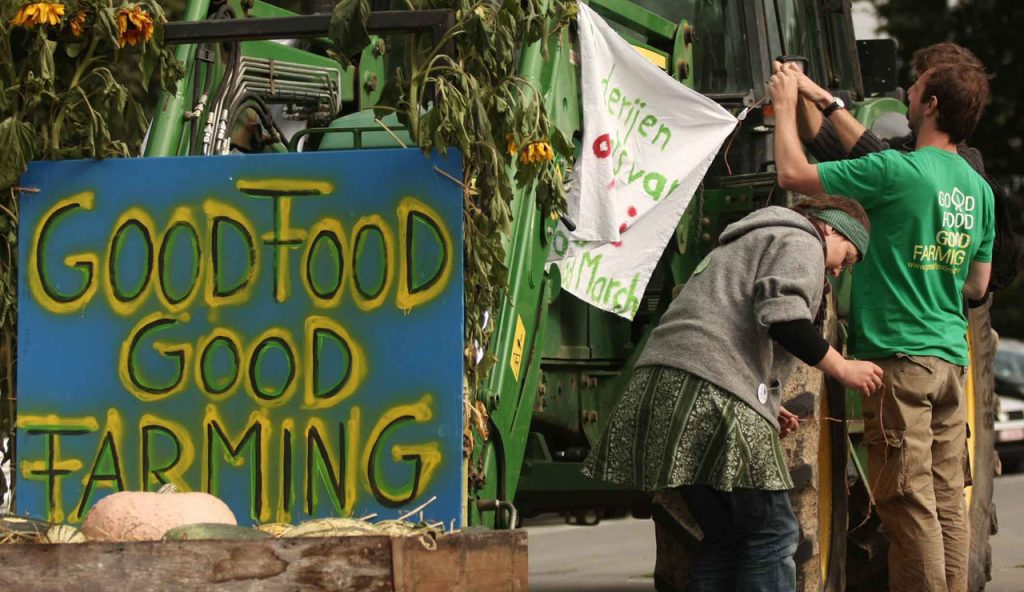Members of the European Parliament today voted to continue the process of ‘greening’ European agriculture.
However the changes don’t go far enough, says Friends of the Earth Europe which is calling for much stronger measures to protect the environment and the majority of small farmers.
The vote on the European Union’s Common Agricultural Policy (CAP) comes on a wave of growing public opposition to industrial farming and its increasingly harmful impacts on the countryside and consumers.
Widespread and growing opposition to industrial farming culminated in a protest by farming and environment groups outside the Parliament in Strasbourg yesterday. [1]
Stanka Becheva, food and agriculture campaigner at Friends of the Earth Europe, said: “The European Parliament has voted to keep the greening of European farming just about alive. This is a strong signal to national governments that people do not want their taxes spent on propping up an industrial farming system that is destroying the environment, causing endless food scandals and ruining the livelihoods of small farmers.
“Tens of thousands of Europeans have been calling for a farming revolution and the movement against industrial agriculture and factory farms won’t stop here. Politicians must listen to citizens instead of big business and produce a truly green farming policy for Europe.”
Assessing the CAP reforms voted today, Friends of the Earth Europe concludes:
- Members of the European Parliament voted to reject attempts to scrap most of the European Commission’s wish to ensure that farmers carry out some basic environmental measures in order to get public subsidies;
- The rotation of crops, crucial to protect soil and water, reduce emissions, and preserve wildlife, and beneficial for both farmers and the environment, is not included. This will lead to the further expansion of monoculture farming practices and an increase in accompanying pesticides use;
- Large industrial farms will continue to receive the lion’s share of the subsidies while small farmers will find it harder to survive;
- Developing countries will still be expected to deliver cheap raw materials for the European food industry and will not be protected from the dumping of Europe’s surplus production on their markets.
This position agreed today will now serve as a negotiating text for the European Parliament to debate with Member States and the European Commission before the three institutions agree on the final reform package around the middle of the year. The new policy is expected to be implemented at the beginning of 2014.
– – –
NOTES
[1] Civil society gather in Strasbourg ahead of EU Parliament’s final CAP vote – information and images at: http://www.goodfoodgoodfarming.eu/press/press-releases.htmlThousands of people sent messages to politicians calling for greener and fairer farming as part of the ‘Good Food Good Farming’ campaign: http://www.goodfoodgoodfarming.eu





